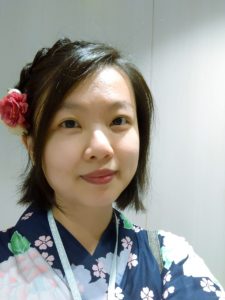Hui-Hua Lu is a PhD student in translation studies at the School of Modern Languages. Her PhD project focuses on the Taiwanese translations of Alice’s Adventures in Wonderland and Through the Looking-Glass and What Alice Found there. Before coming to Exeter, she taught English for almost ten years in Taiwan and has worked as a translator since 2014. Beginning from 2020, she undertook the role as a teaching assistant at the School of Modern Languages.
When I firstly started working as a translator in 2014, I did not read many translation theories. Rather, I was focusing on finding clients and developing my reputation as a translator. In this post, I would like to share my personal experience of being a translator and how translation studies help and conflict with practical translation.
- Studying translation:
While translation studies has expanded its scope and is not limited to languages per se, I will still focus on languages in this post to create a link between practice and theory. One of the ways to study translation from a linguistic perspective is to discuss translation strategies. That is, how do we translate a word, phrase, or sentence from one language into another? Do we need to add more information in the target text? Or do we explain something that target readers might not understand? Studying translation strategies allows us to see how and why a translation is approached.
- Doing practical translation:
In practical translation, thinking of questions like the ones mentioned above is important for translators. This is ultimately because translation is for people who cannot read the language that the text it was written in. However, working in the translation industry, translators may not always have sufficient time to think carefully and come up with the best strategies for a text.
- The dilemma – faster, faster, faster:
My personal experience is that I never had enough time to think carefully about choosing the best translation strategies for a text, sadly. Most of the time, I am asked to deliver a translation as soon as possible, and sometimes I only have one day for a 1000 word text. While my training in translations studies tells me the importance of translation strategies, my practical translation training tells me to deliver the translation on time. I think that this dilemma will not disappear, but it would be helpful to find a way to deal with it. Therefore, when I gain more experience in translation, I know how much I can translate in a day and what topics I am good at. As a result, I am able to plan my schedule with the workload I can handle and deliver a good quality translation for my clients.
- The advantages:
What translation studies helps is having a deeper understanding of what translation actually means. My approach to a text implies my understanding of the text and shows my bias or ideology towards the text. Studying translation studies allows me to be conscious of my influence on a text; I always try my best to meet clients’ needs and make a good use of my knowledge of translation studies.
For me personally, translation studies and practical translation go hand in hand. This is because I believe that translation is not purely about the exchange between two languages but has more of a hidden agenda. I still remember when I was studying for my master’s degree in translation when a professor told me that I cannot leave one of them aside. To this date, I still recall what she told me, as I am still studying and doing translation at the same time.
Written by: Hui-Hua Lu
Twitter: @jasminelu19091

